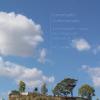Members' books
In this section we announce recently published books by IAMCR members to the IAMCR community. If you are a member of IAMCR and would like to have your recent book listed, send us a message...
By Jonathan Hardy, this book is a critical study of the changing relationship between media and marketing communications in the digital age.
By Christian Fuchs, this book analyses the changes of everyday communication in the COVID-19 crisis and how misinformation has spread online throughout the pandemic.
By Surbhi Dahiya, this book is as much a telling of the legacy of India’s pioneering media enterprise as it is about the people and the strategies behind it.
Edited by Daniel Jackson, Alina Bernstein, Michael Butterworth, Younghan Cho, Danielle Sarver Coombs, Michael Devlin and Chuka Onwumechili, this publication captures the immediate thoughts, reflections, and insights from the 2020 Olympic and Paralympic Games from the cutting edge of sport, communication and media research.
By Nico Carpentier, this book combines photography and written text to analyse the role of memorials and commemoration sites in the construction of antagonistic nationalism.
By Guillermo Mastrini, Martin Becerra and Ana Bizberge, this book examines the media conglomerate Grupo Clarín, the largest communication group in Argentina, and one of the main communications groups in Latin America.
Edited by Anna Gladkova and Sadia Jamil, this book focuses on ethnic journalism in the Global South, approaching it from two angles: as a professional area and as a social mission.
Edited by Téwodros Workneh and Paul Haridakis, this book offers critical insight into how counter-terrorism laws have adversely affected journalism practice, digital citizenship, privacy, online activism, and other forms of expression.
By Ashley Riggs, this book reveals how stylistic features may vary according to both political leanings and national and regional contexts, and the influence these features have upon readers.
By Sandra Ristovska, this book examines how human rights organizations are seeking to professionalize video activism through video production, verification standards, and training.
Edited by Ana Cristina Suzina, this book reflects on the epistemological roots of Popular Communication, and how those roots give rise to a research method, a pedagogy, and a practice, from decolonial perspectives.
Edited By Lutz Peschke, this book contributes to the discourse about science communication strategies from different perspectives.
Edited by Loreto Corredoira, Ignacio Bel Mallen and Rodrigo Cetina Presuel, this book delivers an extensive review of the challenges facing modern communication rights.
By Eno Akpabio, this book covers African communication systems, discussing modes and forms of communication across West, East and Southern Africa and comparing them with traditional and new media.
Edited By Abiodun Salawu, this volume considers why the African language press is unstable and what can be done to develop quality African language journalism into a sustainable business.
Edited by Edson C. Tandoc Jr., Joy Jenkins, Ryan J Thomas and Oscar Westlund, this collection examines critical incidents journalists have faced across different media contexts, exploring how journalists and other key actors negotiate various aspects of their work.
Edited by Maria B. Marron, this book argues that, although women’s experiences under misogyny are by no means universal, patriarchal social and institutional systems facilitate gender-based hostility across the globe.
By Nirit Weiss-Blatt, this book provides an in-depth analysis of the evolution of tech journalism. It illuminates the profound changes in the power dynamics between the media and the tech giants it covers.
By Ishani Mukherjee and Maggie Griffith Williams, this book draws on existing scholarship on global movements and intercultural communication in cinema to analyze six cross-cultural films.
In this book, Lance Bennett challenges readers to consider how best to approach the environmental crisis by changing how we think about the relationships between environment, economy, and democracy.



















